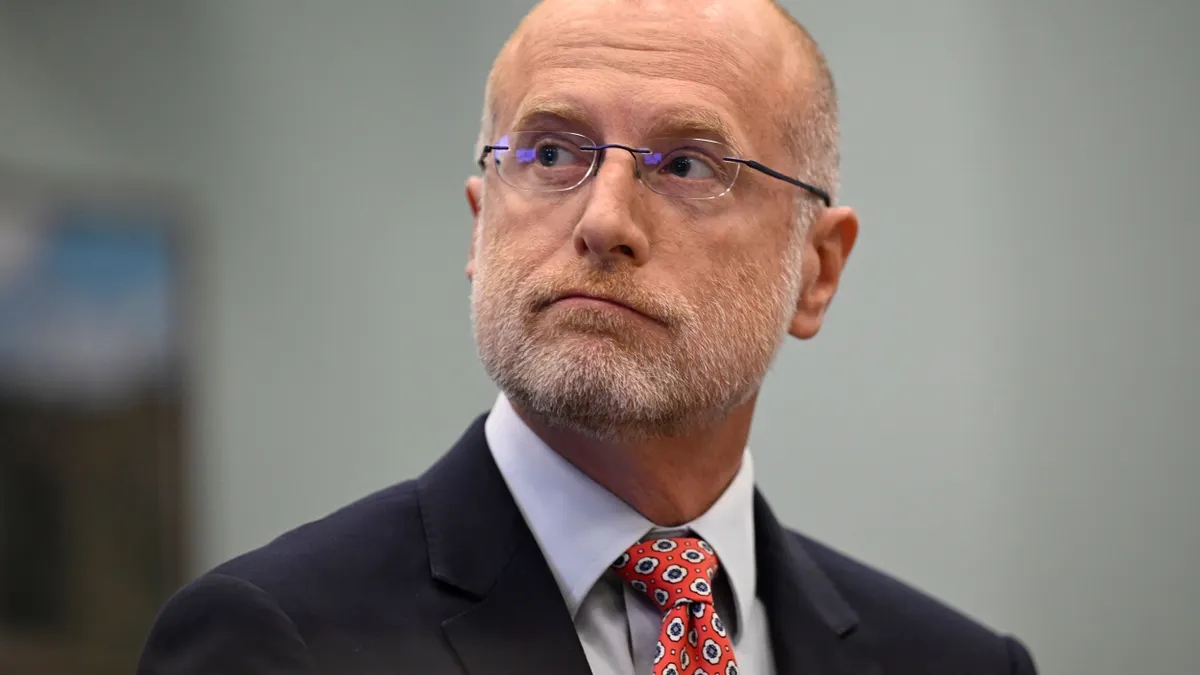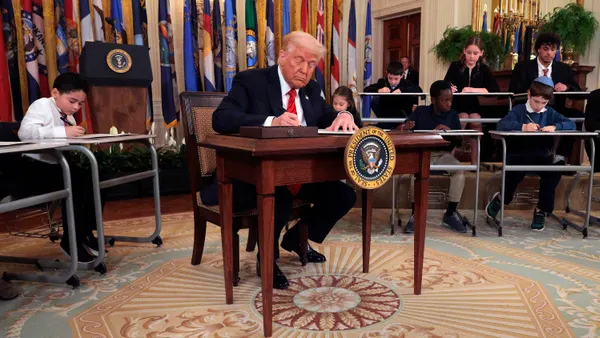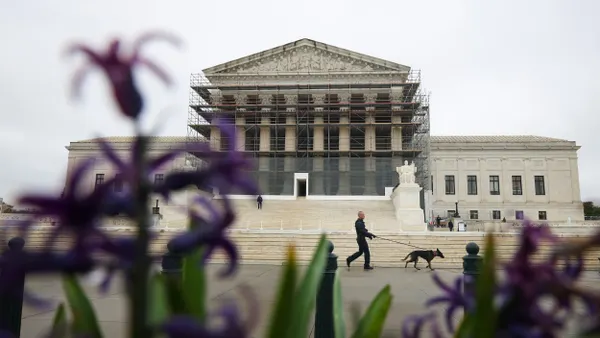UPDATE: Sept. 26, 2025: The Federal Communications Commission is scheduled to vote Tuesday between 10:30 a.m. and 12:30 p.m. ET on whether to revoke recent expansions to the E-rate program. During the public, open commission hearing, the three commissioners are to decide if school bus Wi-Fi services and internet hotspots should no longer be eligible for funding under the federal E-rate program.
Dive Brief:
- An E-rate expansion that allowed schools to use the program's funds for school bus Wi-Fi and hotspots for students could soon be reversed, pending a vote called for by Federal Communications Commission Chairman Brendan Carr on Wednesday.
- The vote on the proposal to reverse the Biden-era expansions is currently “on circulation” as of Friday, according to an FCC spokesperson. That means commissioners can vote on the matter outside of their open monthly meetings at their discretion.
- With a Republican majority among the three commissioners, it’s possible the E-rate expansion could be reversed.
Dive Insight:
Carr’s proposal comes at a time of high demand among school districts to expand students’ internet access through school bus Wi-Fi and hotspots.
Schools and districts have requested a total of $15.3 million in E-rate funds to pay for school bus Wi-Fi and $50.2 million for hotspots so far in fiscal year 2025, according to federal data.
E-rate, also known as the schools and libraries universal service support program, helps connect schools to affordable broadband. The federal program is administered by the nonprofit private corporation Universal Service Administrative Co., or USAC, under the FCC’s authority.
If Carr’s proposal is approved, the FCC will direct USAC to deny the pending FY 25 requests to use E-rate funds for hotspots and school bus Wi-Fi services.
Millions of students and older adults rely on the expanded E-rate services for homework and telehealth services, said FCC Commissioner Anna Gomez, a Democrat, in a Wednesday statement.
“Now the FCC is moving to strip that connectivity away while doing nothing to make broadband more affordable,” Gomez said. “Their latest proposals will only widen the gap between those with access to modern-day tools and those left behind.”
The commission approved the school bus Wi-Fi addition in 2023 and then voted to include hotspots the following year. Carr, a commissioner at the time, voted against both E-rate expansion measures.
School bus Wi-Fi access is especially beneficial for students in rural areas with long commutes to school, said Andrew Jay Schwartzman, senior counselor at the Benton Institute for Broadband & Society, in a Wednesday statement. Carr’s push to reverse the use of E-rate funds for those services will “lock rural kids into dead zones,” he added.
“Chairman Carr’s moves today are very unfortunate, as they further signal that the Commission is no longer prioritizing closing the digital divide,” Schwartzman said.
The Consortium for School Networking also released a statement Friday denouncing Carr’s plan. The expansion of the E-rate program has been “critical to closing the digital divide and ensuring every student can learn, both in school and where they live and learn.”
In his announcement, Carr said the FCC violated Congress’ authority when it decided to broaden E-rate under the Biden administration.
“During COVID-19, Congress passed a law that expressly authorized the FCC to fund Wi-Fi hotpots for use outside of schools and libraries. When that program ended, so did the FCC’s authority to fund those initiatives,” Carr said. “Nonetheless, the Biden-era FCC chose to expand its E-Rate program to fund those initiatives long after the COVID-19 emergency ended.”
Carr also praised Sen. Ted Cruz, R-Texas, for leading a Senate vote in May approving a repeal of the FCC’s decision to cover hotspots under E-rate. The bill is still awaiting action from the House.












